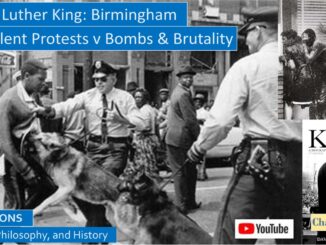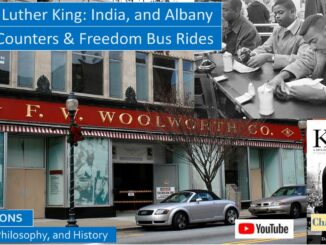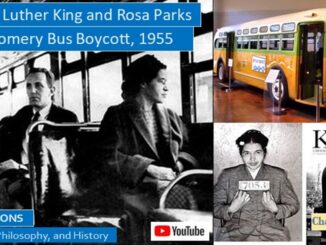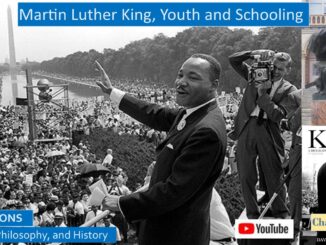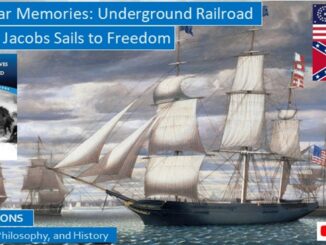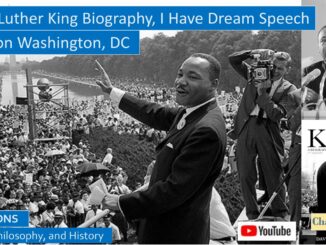
Martin Luther King, I Have a Dream Speech, March on Washington DC, Biography Chapter 8
MLK’s I Have a Dream Speech begins: “Five score years ago, a great American, in whose symbolic shadow we stand today, signed the Emancipation Proclamation. This momentous decree came as a great beacon light of hope to millions of Negro slaves who had been seared in the flames of withering injustice. It came as a joyous daybreak to end the long night of their captivity.” […]

